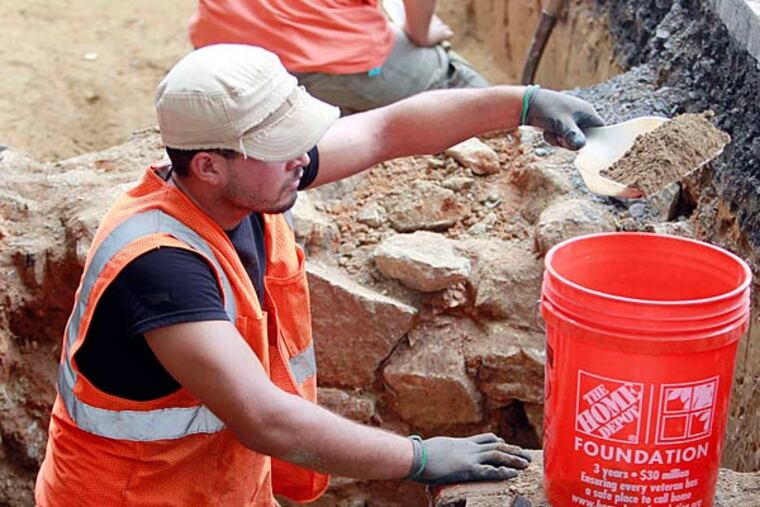City urged not to disturb Mother Bethel burial ground
PHILADELPHIA Descendants of Richard Allen, founder of Mother Bethel Church and of the African Methodist Episcopal Church, have urged Philadelphia to avoid any disturbance of the recently rediscovered Mother Bethel burial ground at Queen and Lawrence Streets.

PHILADELPHIA Descendants of Richard Allen, founder of Mother Bethel Church and of the African Methodist Episcopal Church, have urged Philadelphia to avoid any disturbance of the recently rediscovered Mother Bethel burial ground at Queen and Lawrence Streets.
In a joint letter read Sunday at a public meeting at Bethel Church, five Allen descendants pointed out that the cemetery, acquired by Allen in 1810 and in active use until the mid-1860s, was the original burial site of Richard and Sarah Allen, as well as of a host of church founders.
(The Allens were later moved to Bethel church crypt, officials say.)
The city, the letter said, should ensure that "no development of the Weccacoe Playground burial site [above the cemetery] will disturb the actual grave sites."
The church sold the land to the city around the turn of the 20th century, and the site has been a garden and playground for more than 100 years.
The Weccacoe Playground is scheduled for renovations beginning next year, and an archaeological study in advance of that construction determined the cemetery may contain the remains of more than 5,000 people - founders of the church, the city and the nation, as well as the poor and the destitute.
The cemetery was placed on the Philadelphia Register of Historic Places last summer. City officials and leaders of various neighborhood groups have said they will defer to Mother Bethel on matters related to the cemetery and its commemoration. The site occupies about a third of the playground.
The Rev. Mark Tyler, pastor of Mother Bethel, assured the 50 to 60 people who braved a snowstorm to attend the meeting that the church strongly opposes any disturbance of the remains.
The archaeological study found evidence of graves as close to the playground surface as two feet.
That means nothing, not even a shrub, can go into that ground. Any greenery will have to be placed in planters.
"We're looking to create some kind of contemplative space," Tyler said, although no design for a commemoration has been drawn up.
Stephanie Gilbert, a descendant of Clayton Durham, one of the Bethel founders buried at the Queen Street site, said those lying there "need to rest."
"We would like, as a family, that the location remain undisturbed," she said, adding, "this is a story of redemption."
Part of the issue for members of the Mother Bethel congregation is that the church let the cemetery fall into serious dilapidation in the latter part of the 19th century, probably because of a lack of money.
The site was then sold for $10,000 to the city, a material act that weighs heavily on congregants today.
Tyler said the proposed commemoration "gives us a chance to go back and right the wrong."
There was no disagreement about commemoration among those present at the meeting, and no one proposed that the renovation project be halted and the playground moved.
Before the meeting, some had questioned the propriety of a playground and cemetery in close proximity.
Tyler emphasized that Bethel was seeking a distinct commemoration that will define the cemetery and lead children to question and parents to think and learn.
"Having children so close gives us an opportunity for real education," he said.
215-854-5594
@SPSalisbury